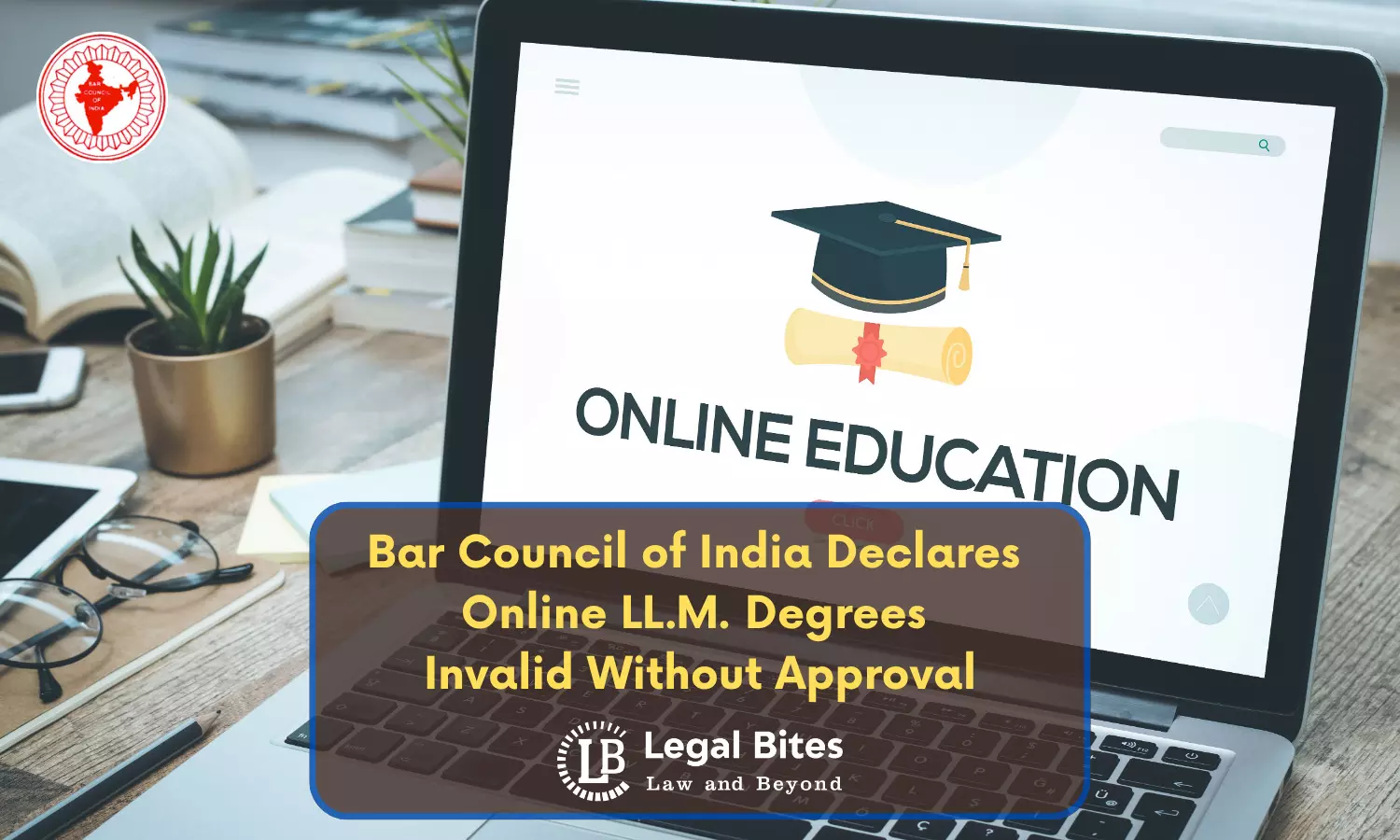Bar Council of India Declares Online LL.M. Degrees Invalid Without Approval
Bar Council of India declares online and hybrid LL.M. programmes illegal; alerts High Courts and warns institutions against violating legal education standards.

In a significant move to safeguard the integrity of legal education in India, the Bar Council of India (BCI) has issued a strong directive against the offering of LL.M. programmes through online, blended, or distance modes by universities and private institutions without its prior approval.
Addressed to the Registrar Generals of all High Courts, the BCI’s communication dated 25 June 2025, reaffirms that such LL.M. programmes—often misleadingly termed as “LL.M. (Professional),” “Executive LL.M.,” or “M.Sc. in Cyber Law”—are unauthorised, unrecognised, and legally impermissible under the Advocates Act, 1961, and the Legal Education Rules, 2008 and 2020.
Key Highlights
- Bar Council’s Exclusive Mandate: The BCI is the sole statutory authority governing legal education in India. No LL.M. course—whether called professional, executive, or otherwise—can be run in online or hybrid modes without BCI’s prior sanction.
- Supreme Court Backing: Citing binding judgments like Vinit Garg v. UGC and Odisha Lift Irrigation Corp. Ltd. v. Ravi Shankar Patro, the BCI emphasised that no institution may offer legal programmes without regulatory approval.
- Statutory Violation and Misrepresentation: The BCI strongly condemned the use of the title “LL.M.” for courses that are diploma-level or lack rigorous academic standards. Such mislabelling is considered academic fraud.
- Show-Cause Notices Issued: Prominent institutions including NLU Delhi, NLIU Bhopal, and O.P. Jindal Global University have reportedly received show-cause notices for running unapproved hybrid or online LL.M. programmes.
- UGC Clarification: The UGC (ODL) Regulations 2020 clearly require that professional courses must be approved by the relevant statutory authority. Legal education falls squarely under BCI’s exclusive jurisdiction.
- Disqualification for Employment or Research: LL.M. degrees obtained through such unauthorised formats will not be valid for teaching LL.B. courses, appearing in UGC-NET, pursuing Ph.D. in law, or for judicial service eligibility.
- No Legitimacy via Disclaimers: Even where universities insert disclaimers like “not equivalent to a regular LL.M.” in brochures, the BCI held that using the term “LL.M.” remains misleading and prohibited.
BCI’s Advisory to High Courts:
The Bar Council has requested all High Courts to:
- Take judicial note of the directive,
- Ensure no appointment or promotion is based on unrecognised LL.M. qualifications, and
- Require candidates to furnish BCI confirmation of programme compliance.
Final Word from the BCI
In no uncertain terms, the Bar Council has warned that:
"Any LL.M. or similarly designated legal programme offered through online, distance, blended, or hybrid mode, without BCI approval, is null and void ab initio and constitutes academic fraud."
The Council has pledged to continue legal action—including contempt petitions—to safeguard the integrity of legal education in India.
Click Here to Read the Official Notification from BCI

